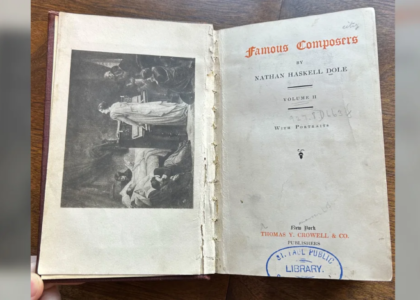Nearly 200,000 books are being used to train artificial intelligence systems by major tech companies, without informing the authors. The system, known as Books3, according to The Atlantic, is built on a collection of pirated e-books covering a wide range of genres, from erotic fiction to prose poetry. Books play a key role in helping AI systems learn to communicate effectively. While some AI training text comes from online articles, high-quality AI requires absorbing language from high-quality text, which is why books are so valuable.
Books3 has already sparked lawsuits against Meta and other companies using the dataset to train AI. Thanks to a database recently published by The Atlantic, authors can now check if their books were included, and many are upset. Author Mary H.K. Choi expressed her outrage on social media, describing herself as “gutted and helpless” upon discovering her work was used. Her debut novel *Emergency Contact* was a deeply personal project, making it even more upsetting for her.

Min Jin Lee, author of *Pachinko* and *Free Food for Millionaires*, also voiced her frustration, calling the use of her books “theft.” Nora Roberts, a prolific romance novelist, has 206 books in the Books3 dataset, the most of any living author, second only to Shakespeare. She described the situation as “all kinds of wrong” and emphasized the exploitation of writers for corporate profit.
Nik Sharma, author of the cookbook *Season*, was similarly upset but not surprised by the use of his work, commenting that no permission or compensation was given for training AI. While some authors, like James Chappel, are unbothered by their work being used, the broader concern among writers continues to grow. The Writers Guild of America strike this summer partly focused on the issue of AI in creative work. Artists, too, have faced similar challenges, as text-to-image AI systems used their work without permission.

As the AI debate intensifies, U.S. President Joe Biden has announced plans to introduce an executive order on AI this fall, aiming for responsible AI innovation. However, for many authors, the struggle feels overwhelming. Choi summed up her experience as both “surreal” and inevitable, reflecting the sentiment shared by many writers facing the AI era. Roberts has called for unity among writers and readers alike to stand against the misuse of their work.




